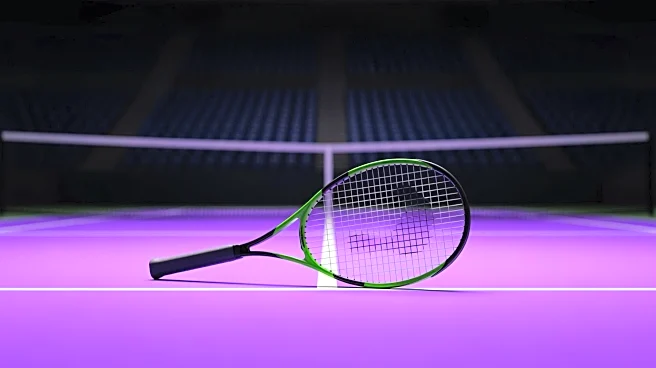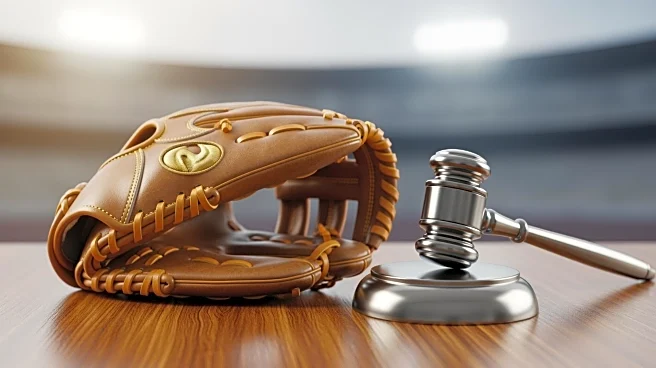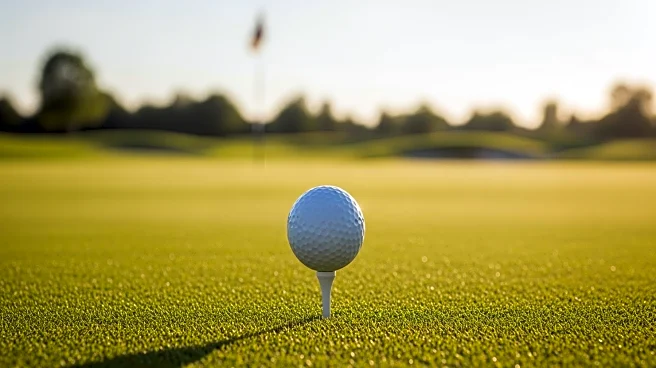What's Happening?
Aryna Sabalenka, a prominent figure in women's tennis, faced a challenging moment after losing to Elena Rybakina in the WTA Finals. Despite her dominant performance on the WTA Tour, Sabalenka's defeat
was marked by an emotional reaction. Following the match, she was seen in her coaching box, surrounded by her team, visibly upset. This reaction was reminiscent of her previous emotional response at the French Open final. Sabalenka, a four-time Grand Slam champion, has yet to secure victories at Roland Garros, Wimbledon, and the WTA Finals, which remains a point of frustration for her. Her achievements on hard courts in New York and Melbourne highlight her prowess, but the elusive titles continue to challenge her competitive spirit.
Why It's Important?
Sabalenka's emotional response underscores the intense pressure and expectations faced by top athletes. Her dominance in women's tennis over the past two years has set high standards, making the absence of certain titles more significant. This situation highlights the competitive nature of the sport and the psychological challenges athletes endure. Sabalenka's journey reflects the broader narrative of perseverance and resilience in sports, influencing aspiring players and fans. Her continued pursuit of these titles will be closely watched, impacting her legacy and the dynamics of women's tennis.
What's Next?
Sabalenka's focus will likely remain on achieving victories at the remaining Grand Slam events and the WTA Finals. Her team will play a crucial role in supporting her through these challenges, aiming to enhance her performance on different surfaces. The tennis community will be attentive to her strategies and adaptations in upcoming tournaments. Sabalenka's ability to overcome these hurdles could redefine her career trajectory and inspire changes in training and preparation methods within the sport.
Beyond the Headlines
Sabalenka's situation raises questions about the mental health and well-being of athletes. The emotional toll of high-stakes competitions can lead to discussions on support systems and coping mechanisms for players. Her experience may prompt organizations to prioritize mental health resources, fostering a healthier environment in professional sports.









